Are you gearing up for an important business meeting but can't attend in person? You might be wondering how to ensure that your interests are still represented. A well-crafted authorization letter can make all the difference, allowing someone else to speak and act on your behalf. Ready to learn how to create an effective authorization letter for your next meeting? Let's dive in!

Company Letterhead
A business meeting representation authorization document is crucial for ensuring that a designated individual has the legal power to act on behalf of a company. This document typically includes key details such as the name of the company, represented by a recognizable brand logo, along with the full name and title of the authorized individual. The purpose of the meeting, such as discussing a potential partnership or negotiating contracts, should also be outlined to clarify expectations. Date and location of the meeting, such as a conference room in a major city like New York or San Francisco, must be detailed. Additionally, the document often includes a signature line for company executives, along with a company stamp for authenticity, which adds credibility to the authorization.
Authorized Representative Details
An authorized representative acts on behalf of a business entity during crucial negotiations or meetings. This individual usually requires a formal document granting them the authority to represent the business. Such authorization often includes key details like the representative's full name (for example, John A. Smith), position (e.g., Chief Financial Officer), and the name of the company (e.g., ABC Corp, located in New York City). The letter should also specify the scope of authority, including decision-making capabilities or signing contracts, in order to ensure transparency during discussions. Additionally, a valid signature from a higher authority, such as the CEO, is essential to validate this representation.
Specific Meeting Information
Authorization for business meeting representation involves clear communication of details. Representatives must obtain permission from organizational leadership to attend meetings on behalf of the business. Specific meeting information should include the meeting date (e.g., March 15, 2024), time (e.g., 10:00 AM to 12:00 PM), and location (e.g., 123 Main Street, Conference Room B, New York City). Objective of the meeting (e.g., discussing annual budget revisions) should be explicitly stated for clarity. Additionally, authority to negotiate or make decisions during the meeting must be established, ensuring the representative can effectively advocate for the organization's interests.
Scope of Representation
A business meeting representation authorization often involves delegating the authority to a representative for specific tasks or discussions. This scope typically includes key areas such as decision-making on behalf of the organization, negotiation of terms, and signing of agreements or contracts during the meeting. The document must clearly outline the delegate's powers, including limits and conditions under which they can act. Essential details involve the date of the meeting, location--such as the conference room at the corporate office in New York City, particulars of the agenda items, and the names of all parties involved. Additionally, it may require the signature of a senior executive to validate the authorization. Clarity on the scope ensures legal compliance and protects the interests of the organization as well as the appointed representative.
Signatory Authority
In corporate environments, a signatory authority document serves a pivotal role by designating individuals to represent a business during important meetings or transactions. This document often includes essential details such as the company's name, registered address, and the specific authority granted to the signatory. Notable dates, such as the authorization date and duration, provide clarity on the timeframe for representation. Furthermore, the signatory's full name, position within the organization, and signatures authenticate the legitimacy of the document. In instances where companies follow specific formats as required by laws in countries like the United States or regulations in the European Union, adherence to these stipulations is crucial for compliance and successful negotiation in various business environments.
Letter Template For Business Meeting Representation Authorization Samples
Letter template of business meeting representation authorization for corporate delegate
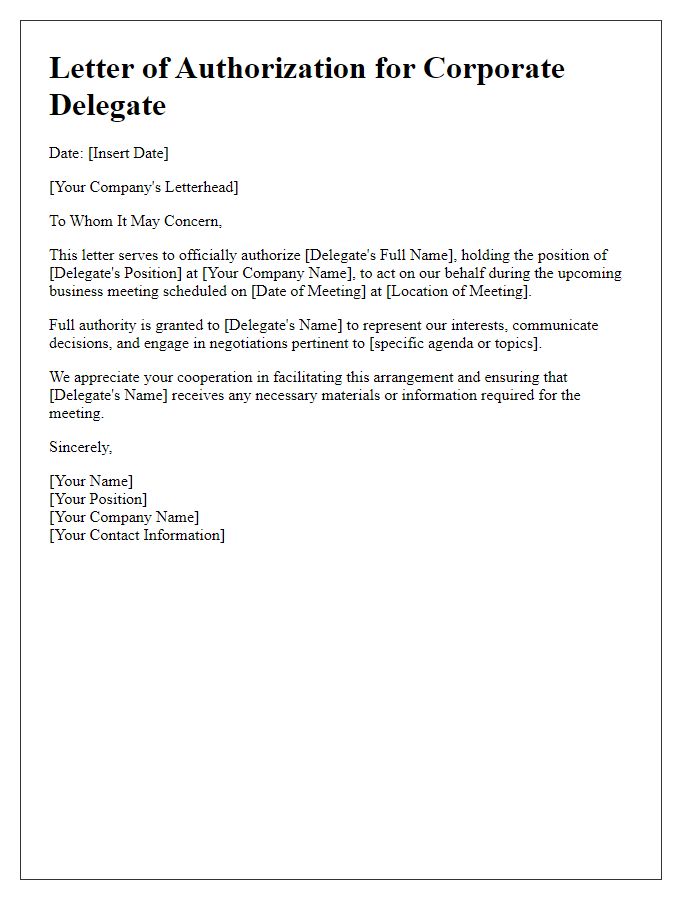
Letter template of business meeting representation authorization for executive appointment
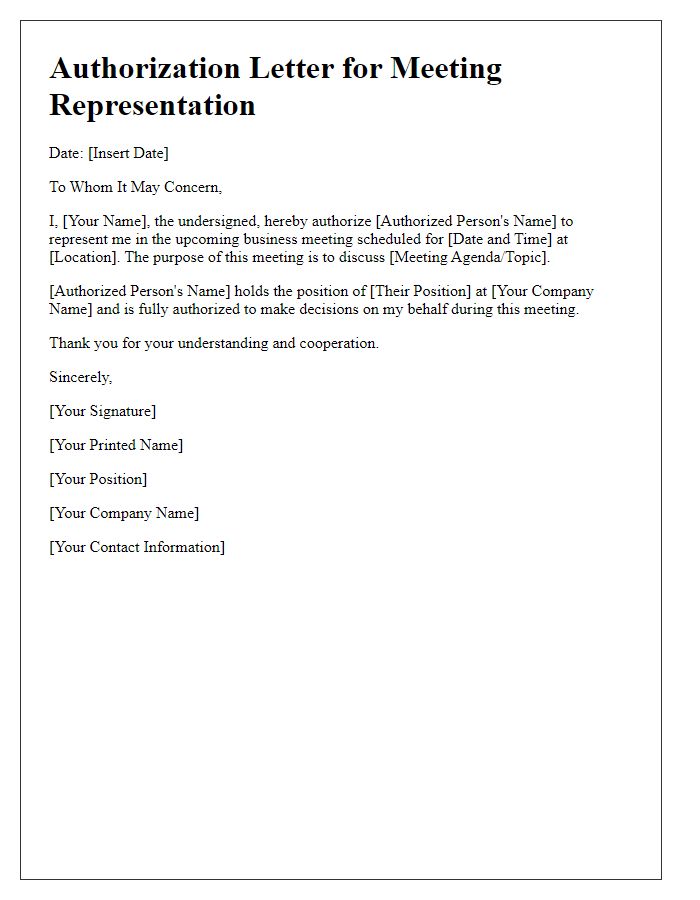
Letter template of business meeting representation authorization for team leader
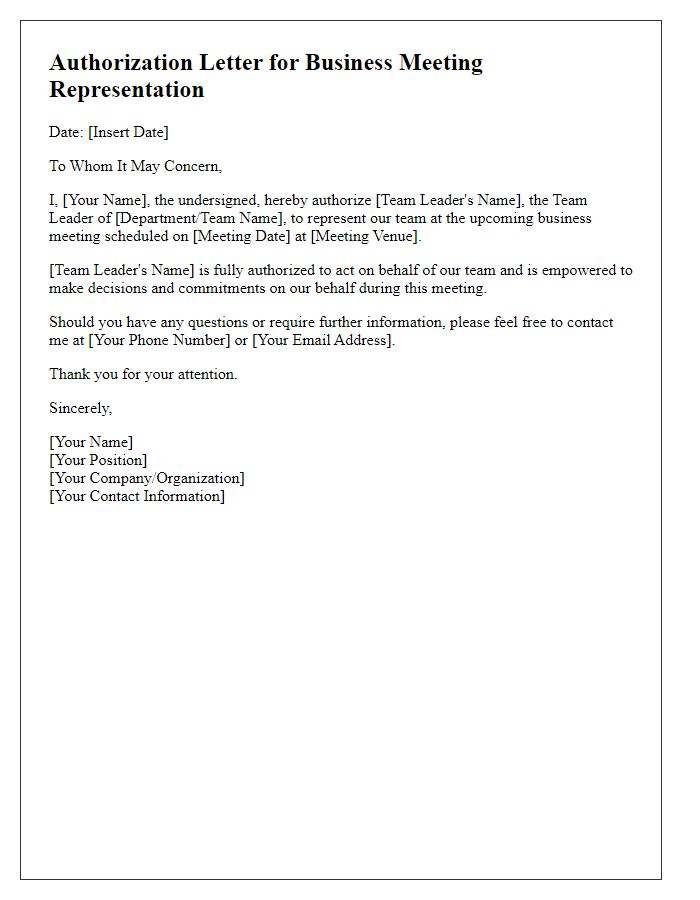
Letter template of business meeting representation authorization for project manager
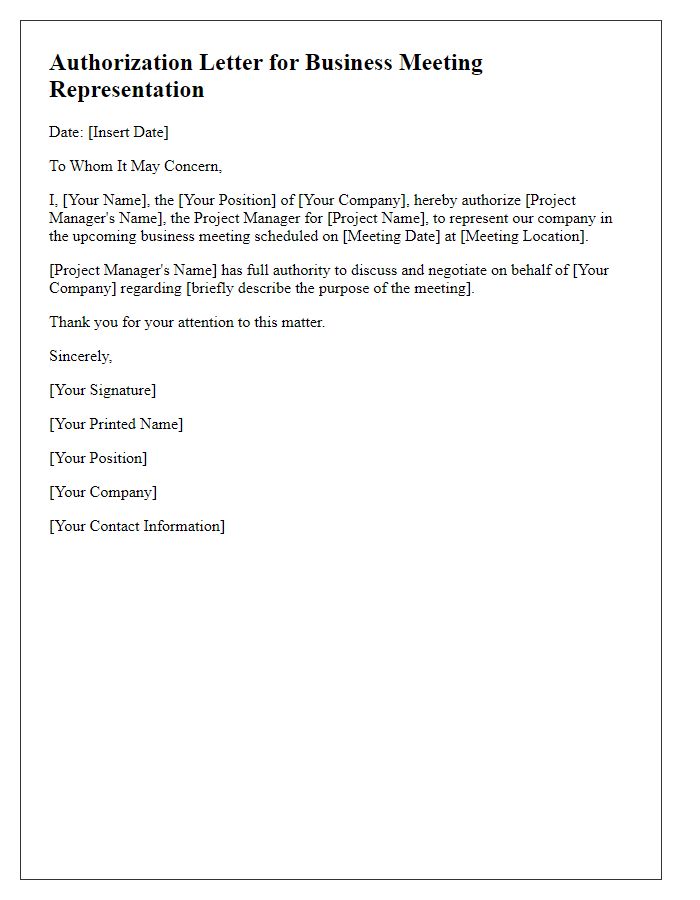
Letter template of business meeting representation authorization for senior analyst
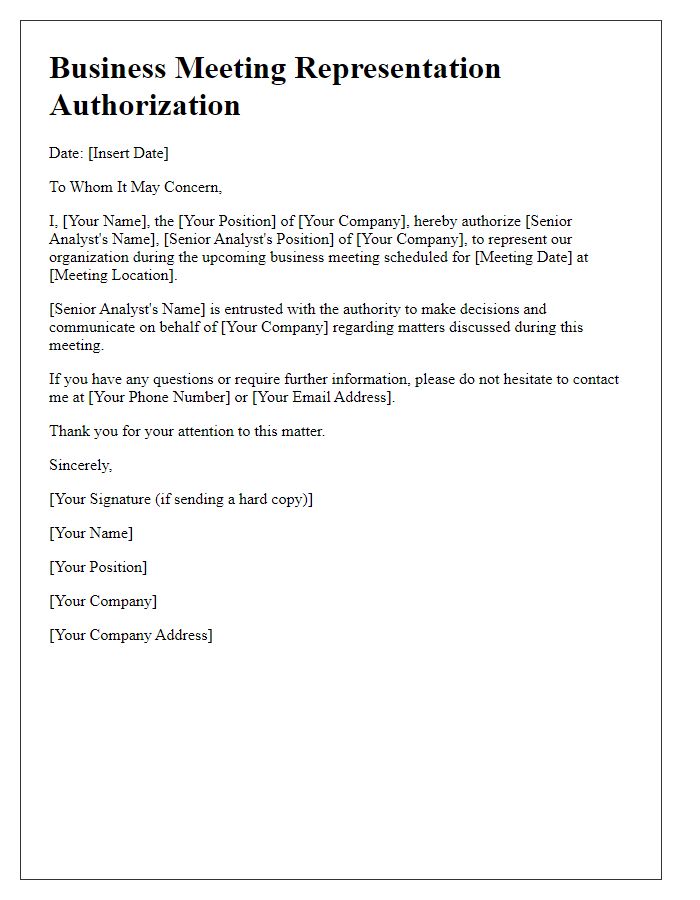
Letter template of business meeting representation authorization for board member
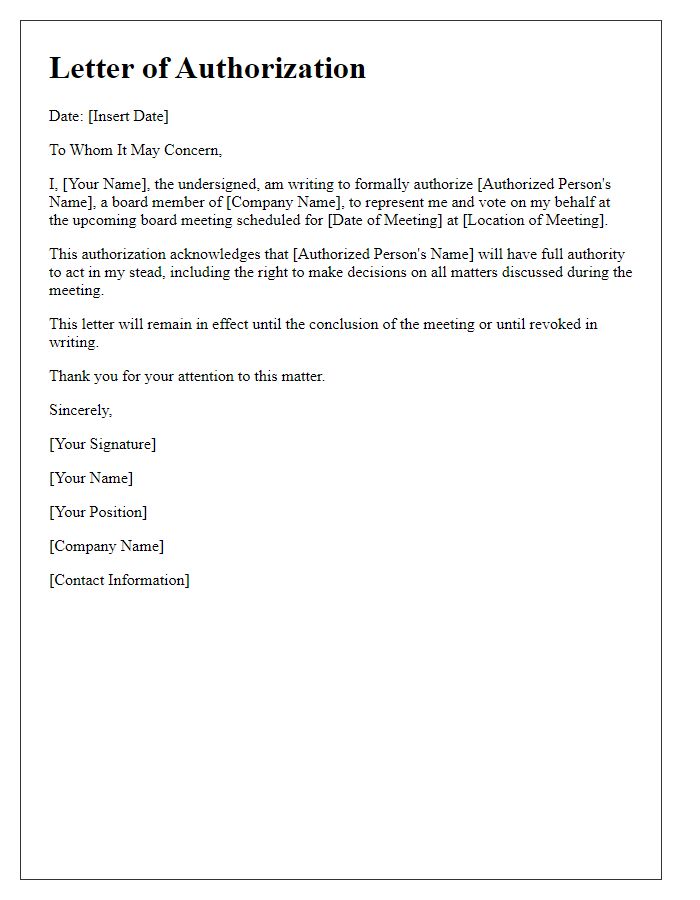
Letter template of business meeting representation authorization for temporary proxy
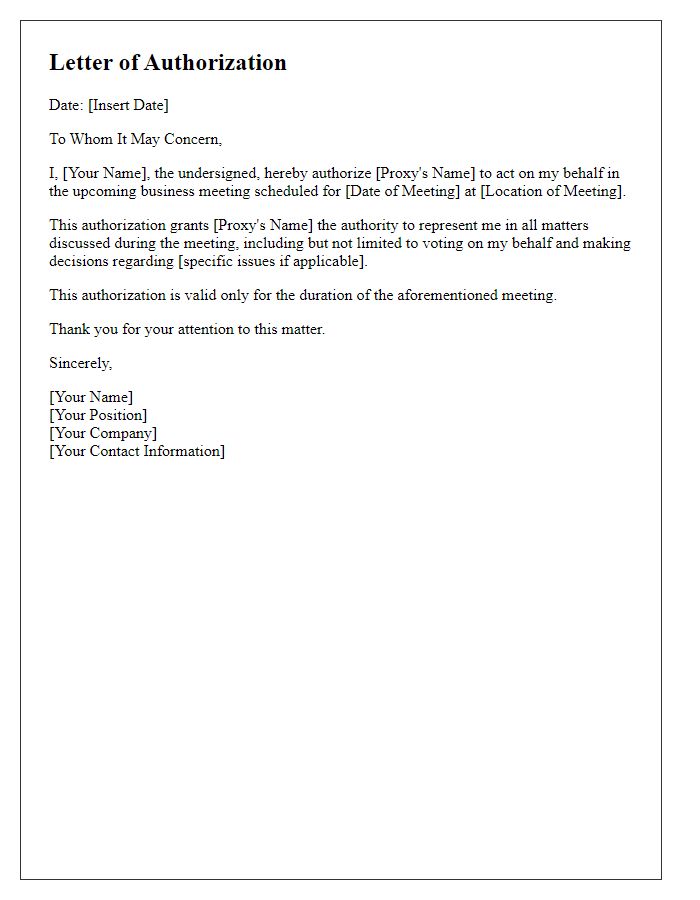
Letter template of business meeting representation authorization for client liaison
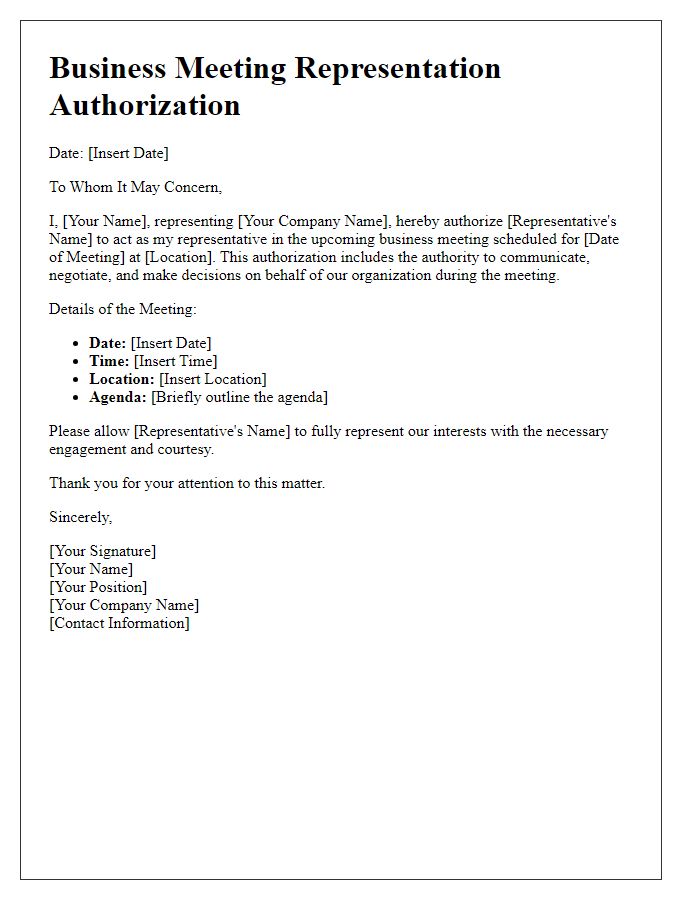
Letter template of business meeting representation authorization for legal representative
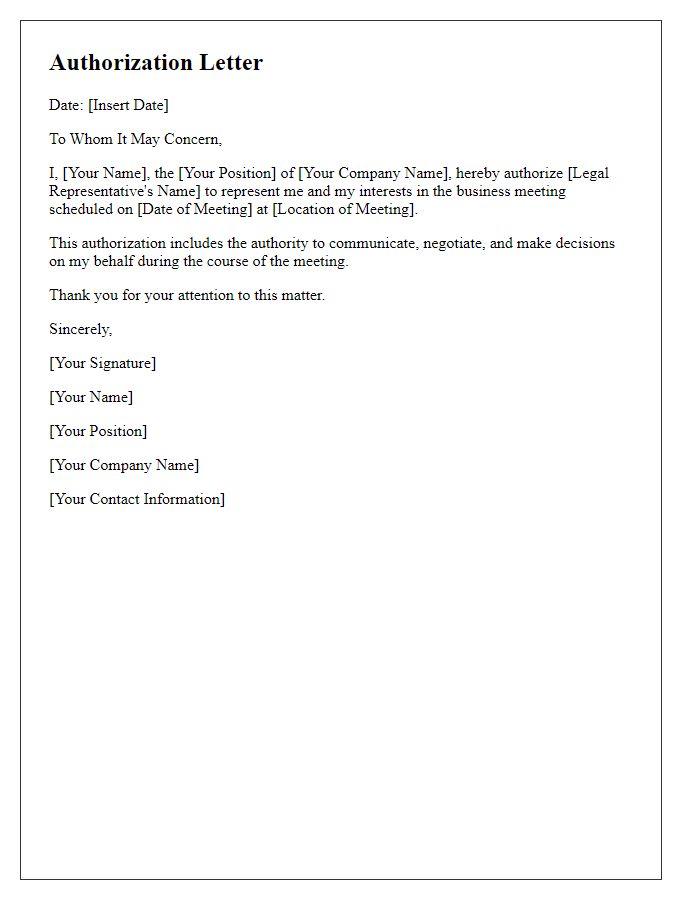

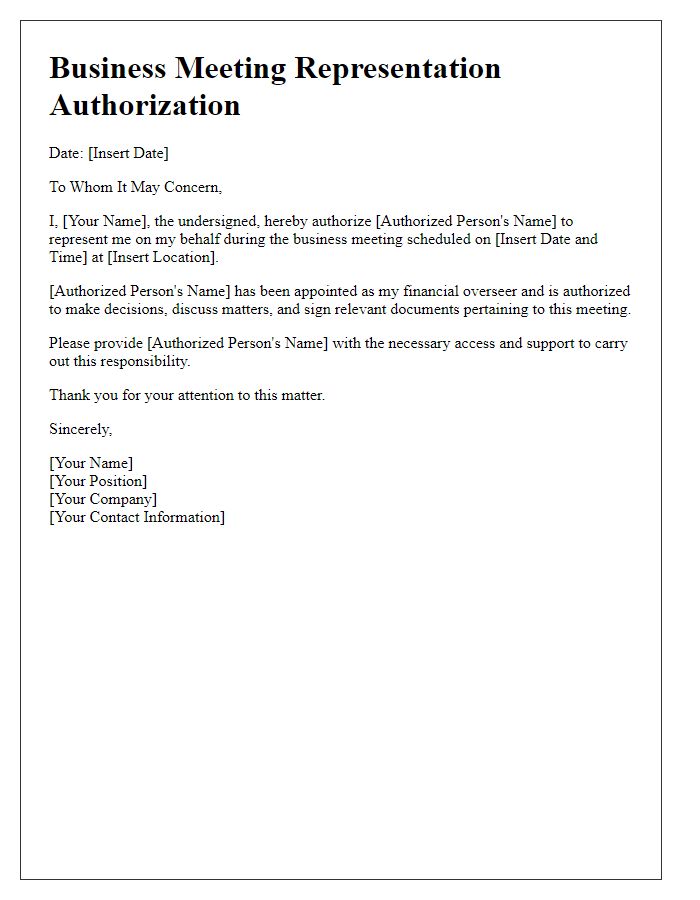


Comments